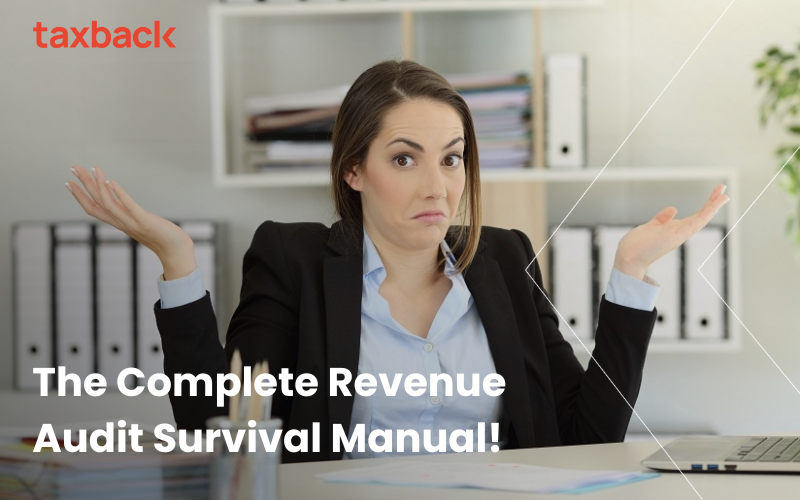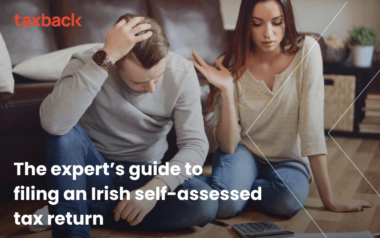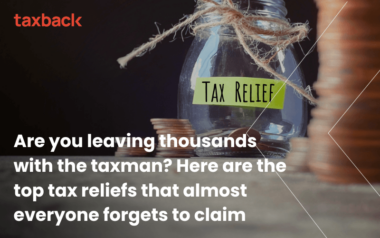Believe it or not, there are over 700,000 self-employed or self-assessed individuals in Ireland.
Every self-assessed individual is required to file a tax return before the (online) mid-November deadline. Every tax return filer can be subject to a Revenue audit at any stage.
In fact, in 2017 alone, Revenue collected over €190 million from the 5,200 audits that were carried out.
With figures like these, it is no wonder that many taxpayers find the thoughts of a Revenue audit to be quite daunting.
In truth, getting selected for an audit could happen to anyone. And just because you have been selected for an audit does not mean that you have been accused of tax evasion.
Revenue screens and checks each tax return it receives. If they see something that they want to double-check, they will start to make enquiries.
But if you have nothing to hide, you’ll likely have little to worry about!
That said, if you do receive an audit notification letter from Revenue, there are several prep steps you can take to ensure the process is completed without a hitch.
With this in mind, here’s our guide to surviving an audit!
Get Your Irish Tax Refund Now!
Preparing for an audit step-by-step
Step 1 – Examine your audit notification letter

If you are selected for an audit you will receive written notice 21 days in advance.
You should review in detail your audit notification letter.
The letter will include details of:
- the date and time of the audit
- the accounting period that will be audited
- whether the audit will focus on one issue or several issues
If you require clarification regarding any details in the notification you should contact Revenue right away.
Step 2 – Meet with your accountant or tax advisor (if you have one)
A meeting with your tax advisor will help you understand the audit process and potentially ease some of the anxieties you may have. Your accountant will also be able to advise you on any information you need to gather ahead of the audit.
You should also discuss with your accountant any issues or concerns you have regarding your taxes.
For example, do you have expenses that you can’t provide receipts for? Or have you got a source of income that was not declared on your tax return?
Your accountant can advise you on the best ways to prepare for the audit with these issues in mind.
Your accountant can also help you conduct a dry run of the audit. This will ensure that all information required by the auditor is readily available and that no potential problem remains unidentified.
Step 3 – Review all relevant documents
In order to verify the details included in your tax returns, it’s a good idea to have all relevant supporting documentation on hand during the audit.
For example, you’ll need all of your sales and purchases invoices and the auditor should be able to match these in your financial accounts.
Mistakes happen. This is why it’s important to review all the relevant documents relating to the tax period outlined in the audit notification to identify any errors or discrepancies.
Step 4 – Voluntary Disclosures
Honesty is always the best policy! This is especially true when it comes to your tax obligations.
If you discover an error on your tax return after you have received an audit notification you can submit a qualifying disclosure to Revenue.
You will have two weeks after receiving your audit notification to inform Revenue that you intend to make a qualifying disclosure. You will then be given a further 60 days to gather everything you need for the qualifying disclosure and to arrange payment of back taxes and whatever interest is due (at rates of up to 10% per annum).
It’s vital that your qualifying disclosure addresses all of the issues raised in the audit notification as well as any additional issues you have become aware of or liabilities you owe.
Penalties
Making a qualifying disclosure will generally result in a reduction of penalties you may owe at the end of the audit process.
Penalties start at 100% of the tax liability, but full disclosures can reduce the penalty to as little as 3%.
Another good reason for making a disclosure is that in many cases it will keep your name out of the paper as a tax defaulter.

What actually happens during an audit?
An audit will usually proceed as follows:
- The auditor will explain the purpose of the audit and indicate how long the process will take. You will then have an opportunity to make a disclosure if you suspect that you may have a tax liability
- Your books and records for the tax year in question will then be examined
- Your auditor will inform you if all is in order with your return. Or, if your return needs to be adjusted, they will discuss this with you and also provide written notification of the required amendments
- You will then have a final interview with the auditor and you will be asked to agree on a total settlement (if necessary)
- After you have agreed on the final settlement, you will have an opportunity to pay the auditor who will then give you a receipt
Get Your Irish Tax Refund Now!
Why me?
Less than one in every 20 audits are selected randomly. If you receive an audit notification letter it usually indicates that Revenue are not satisfied with something on one of your tax returns or they have information that you have not declared some of your income.
Can I avoid an audit?
No! But there are a few things you can do to reduce your chances of being selected.
Your records
Failure to keep proper tax records is a common mistake. Poor accounting systems and bookkeeping practices will inevitably lead to errors and mistakes – and this can potentially increase the likelihood that you will be selected for an audit.
For example self-employed and PAYE taxpayers must keep expense receipts for at least six years. So it’s vital to ensure that these are stored in an organised fashion and in a safe place.
It is the taxpayer’s responsibility to have an accounting system that is fit for purpose. A good cloud-based accounting system is available for as little as €20/€30 per month. Without proper filing and organisation of your tax documents, you will likely find the audit process to be tricky.
What’s allowable?
When it comes to tax, understanding what is allowable is crucial.
For example, any expense you claim must be wholly and exclusively for the purpose of your trade.
And if your business is required to charge VAT, Revenue will examine whether you charged it in the right amount. In other words, you can’t charge 0% or 13.5% VAT when you should have charged 23%!
Get Your Irish Tax Refund Now!
Missing a tax return
If you didn’t file a tax return that you were obliged to, you may attract attention from Revenue.
Ensure that you don’t miss any filing deadlines and double-check that all your returns are complete.
If you need help filing an accurate tax return, Taxback can help you!
The best (and safest!) course of action is to prepare yourself for an audit of every tax return that you file.
If you need help with your tax affairs and want to ensure your tax returns are accurate, contact the Taxback team here!
Last Updated on April 8, 2019







